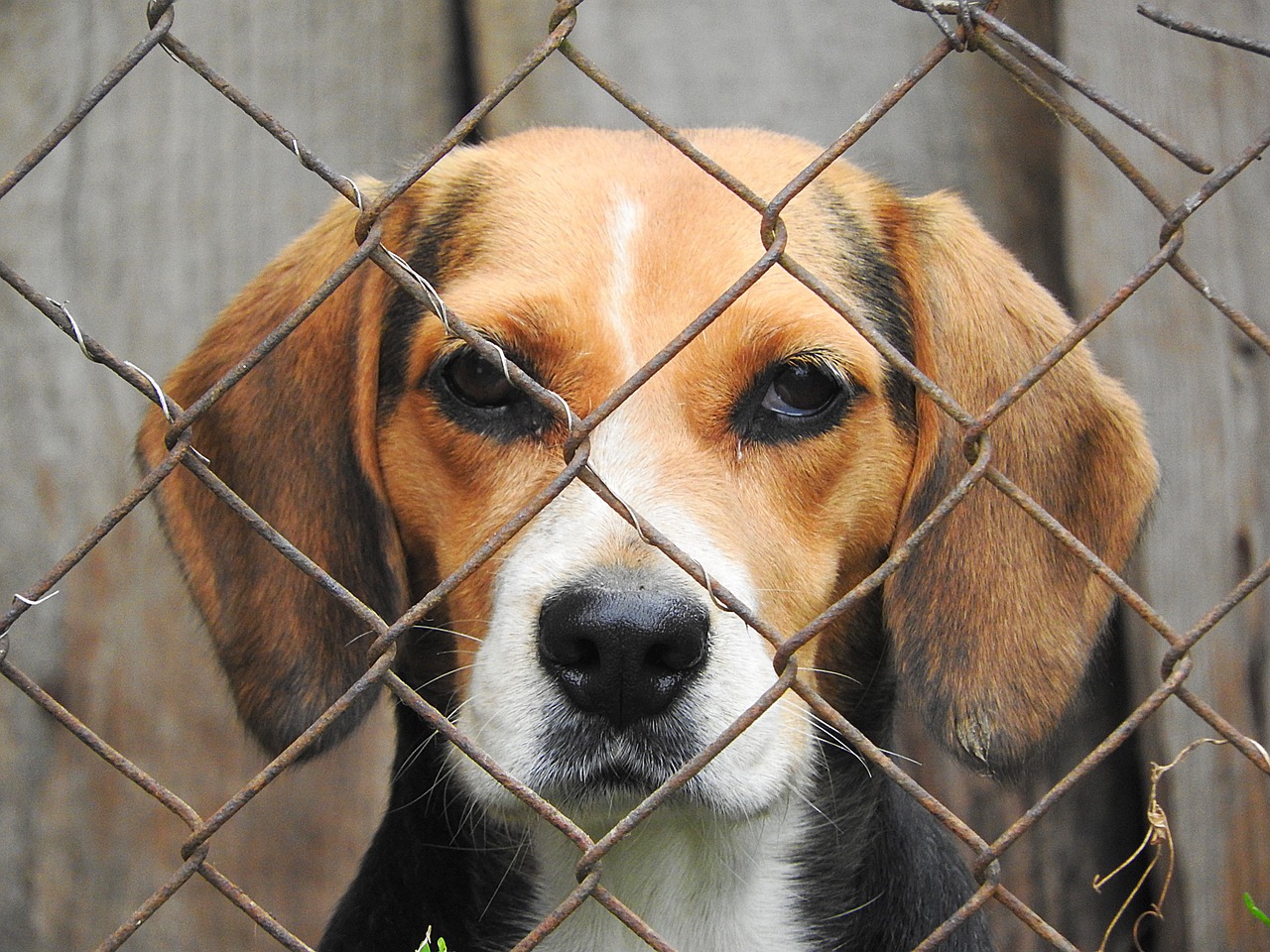Table of Contents
- 1 Introduction: Understanding Beagle Whining: Common Causes and Solutions
- 2 Addressing Beagle Whining: Effective Strategies for a Happier Pup
- 3 Unraveling the Mystery: Decoding Your Beagle’s Whining Behavior
- 4 FAQs About: Why is my beagle whining?
- 4.1 Why is my beagle whining excessively?
- 4.2 How can I determine if my beagle’s whining is due to discomfort?
- 4.3 What can I do to address attention-seeking whining in my beagle?
- 4.4 How can I alleviate my beagle’s anxiety-related whining?
- 4.5 What should I do if my beagle’s whining is due to hunger?
- 4.6 How can I help my beagle cope with loneliness-induced whining?
Introduction: Understanding Beagle Whining: Common Causes and Solutions
Are you wondering why your beagle is constantly whining? If so, you’re not alone. Beagle whining can be a perplexing behavior for many dog owners, but fear not, we’re here to help you unravel the mystery. In this article, we’ll explore the common causes behind beagle whining and provide effective solutions to address this behavior.
Whining is a form of vocalization that dogs use to communicate their needs and emotions. Beagles, known for their expressive nature, often resort to whining to seek attention, express discomfort, or convey anxiety. It can be triggered by various factors such as boredom, hunger, pain, fear, loneliness, frustration, or stress. By understanding the underlying reasons behind your beagle’s whining, you can better address their needs and create a happier and more content pup. So, let’s dive into the world of beagle whining and discover effective strategies to tackle this behavior head-on.
Addressing Beagle Whining: Effective Strategies for a Happier Pup
If you’re wondering why your beagle is whining, it’s important to address this behavior to ensure your furry friend is happy and content. Beagle whining can be caused by various factors, such as communication, attention-seeking, discomfort, anxiety, boredom, hunger, pain, fear, loneliness, frustration, and stress. Thankfully, there are several effective strategies you can implement to address your beagle’s whining and create a happier environment for your pup.
1. Identify the Cause
The first step in addressing your beagle’s whining is to determine the underlying cause. By understanding why your beagle is whining, you can tailor your approach accordingly. For example, if your beagle is whining due to hunger, providing regular meals and ensuring they have access to water can help alleviate this behavior. On the other hand, if your beagle is whining due to anxiety or fear, you may need to work on desensitization techniques or consult a professional dog trainer.
2. Provide Sufficient Exercise and Mental Stimulation
Beagles are an energetic breed that requires plenty of exercise and mental stimulation. Ensuring your beagle gets enough physical activity and mental engagement can help reduce whining caused by boredom or pent-up energy. Take your beagle for regular walks, engage in interactive play sessions, and provide puzzle toys or treat-dispensing toys to keep their mind occupied.
3. Establish a Routine
Beagles thrive on routine, and having a consistent schedule can help reduce their anxiety and whining. Set regular feeding times, exercise routines, and sleep schedules for your beagle. Consistency will provide them with a sense of security and predictability, minimizing their need to whine for attention or out of discomfort.
4. Avoid Reinforcing Whining Behavior
It’s crucial not to inadvertently reinforce your beagle’s whining behavior. If your beagle whines for attention and you give in, they will learn that whining is an effective way to get what they want. Instead, wait for a moment of quietness before providing attention or rewards. This teaches your beagle that being calm and quiet is the desired behavior.
5. Seek Professional Help if Needed
If your beagle’s whining persists despite your best efforts, it may be beneficial to seek professional help from a veterinarian or a certified dog trainer. They can assess your beagle’s behavior, provide further guidance, and help address any underlying issues causing the whining.
By implementing these effective strategies, you can address your beagle’s whining and create a happier and more content pup. Remember to be patient and consistent in your approach, and seek professional help if needed. In the next section, we will delve deeper into understanding the behavior behind your beagle’s whining.
Unraveling the Mystery: Decoding Your Beagle’s Whining Behavior
Understanding why your beagle is whining can be a perplexing task. However, by observing their behavior and considering various factors, you can begin to decode the reasons behind their vocalization. Here, we will explore some common causes of beagle whining and provide potential solutions.
1. Communication and Attention-seeking
Beagles are known for their strong communication skills, and whining is often their way of expressing their needs or desires. They may whine to get your attention, whether they want to go outside, play, or simply receive affection. If your beagle is whining for attention, it’s important to respond appropriately to reinforce positive behavior.
2. Discomfort and Anxiety
Whining can also be a sign that your beagle is experiencing discomfort or anxiety. They may whine if they are feeling unwell, such as when they have an upset stomach or are in pain. Additionally, beagles can become anxious in certain situations, such as during thunderstorms or when left alone for long periods. Identifying the source of their discomfort or anxiety is crucial in addressing their whining behavior.
3. Boredom and Loneliness
Beagles are an energetic and social breed, and when they don’t receive enough mental or physical stimulation, they may resort to whining. If your beagle is whining out of boredom or loneliness, it’s essential to provide them with plenty of exercise, playtime, and social interaction. Consider puzzle toys, interactive games, or even enrolling them in doggy daycare to keep them mentally and physically engaged.
4. Hunger and Thirst
Sometimes, beagles may whine when they are hungry or thirsty. Ensure that you are providing them with regular meals and access to fresh water throughout the day. If your beagle’s whining is persistent and they have recently eaten, it may be worth consulting with a veterinarian to rule out any underlying health issues.
5. Fear, Frustration, and Stress
Whining can also be a response to fear, frustration, or stress. Your beagle may whine if they are scared of loud noises, such as fireworks or vacuum cleaners. Similarly, they may whine if they are frustrated or unable to access something they desire. To alleviate their whining in these situations, create a calm and secure environment for your beagle and provide them with appropriate outlets for their energy and frustration.
By understanding the various reasons behind your beagle’s whining, you can address their needs and ensure a happier pup. Remember, each beagle is unique, so it may take some time and patience to decipher their specific whining behavior. With consistent training, positive reinforcement, and a loving environment, you can help your beagle overcome their whining tendencies and strengthen your bond with them.
FAQs About: Why is my beagle whining?
Why is my beagle whining excessively?
Excessive whining in beagles can be caused by various factors such as discomfort, anxiety, boredom, hunger, pain, fear, loneliness, frustration, or stress. It’s important to observe your dog’s behavior and consult with a veterinarian to identify the underlying cause.
How can I determine if my beagle’s whining is due to discomfort?
If your beagle’s whining is accompanied by signs of physical discomfort, such as limping, restlessness, or changes in appetite, it could indicate pain or discomfort. It’s best to have your dog examined by a veterinarian to rule out any medical issues and provide appropriate treatment.
What can I do to address attention-seeking whining in my beagle?
If your beagle tends to whine for attention, it’s important to avoid reinforcing this behavior by giving in to their demands. Instead, establish a consistent routine, provide mental and physical stimulation, and reward your dog for calm and quiet behavior. Gradually, your beagle will learn that whining does not result in attention.
To address anxiety-related whining, create a calm and safe environment for your beagle. Consider using calming techniques such as providing a comfortable den-like space, using pheromone diffusers, or playing soothing music. Additionally, consult with a professional dog trainer or behaviorist for guidance on desensitization and counterconditioning exercises.
What should I do if my beagle’s whining is due to hunger?
If your beagle’s whining is related to hunger, ensure that they are being fed a balanced diet with appropriate portion sizes. Consider dividing their meals into smaller, more frequent feedings throughout the day. Providing puzzle toys or interactive feeders can also help keep your beagle mentally stimulated and satisfied.
How can I help my beagle cope with loneliness-induced whining?
If your beagle whines due to loneliness, consider providing them with companionship through playdates with other friendly dogs, hiring a dog walker, or enrolling them in doggy daycare. Leaving interactive toys or treat-dispensing puzzles can also help keep them occupied and alleviate their feelings of loneliness.






Leave a Reply